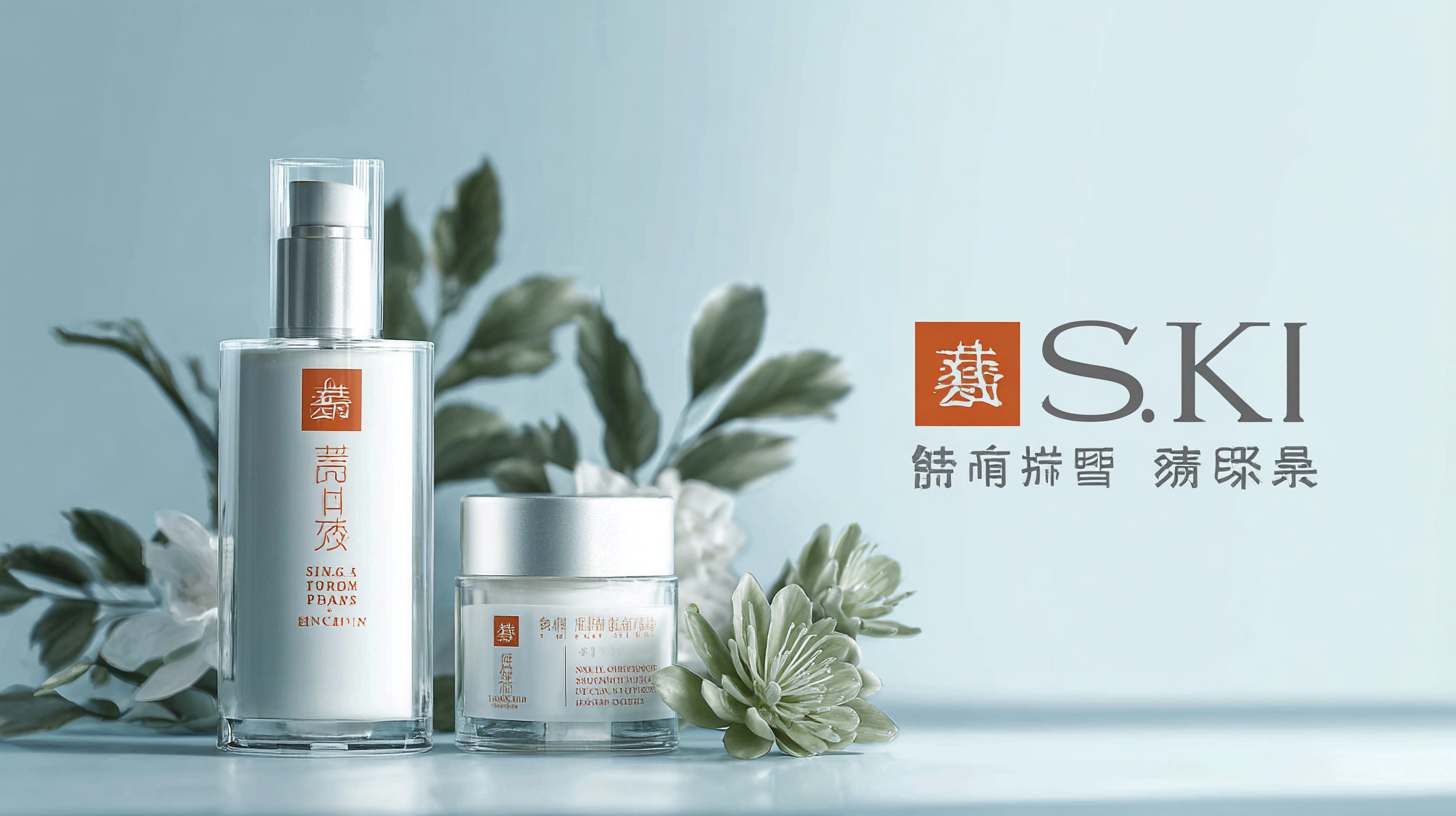Discovering Quality Suppliers for Best Skin Treatment Solutions in Global Sourcing Context
In the ever-evolving landscape of skincare, sourcing quality suppliers for skin treatment solutions has become paramount for industry stakeholders. According to a report by Grand View Research, the global skincare market is expected to reach USD 189.3 billion by 2025, driven by increased consumer demand for effective skin treatment products. As consumers become more discerning, the emphasis on safety, efficacy, and sourcing standards has never been greater. The importance of discovering reputable suppliers capable of delivering innovative and high-quality skin treatment solutions is crucial for brands striving to maintain competitive advantage. This blog will explore examples of successful global sourcing strategies that prioritize quality suppliers, ensuring that consumers receive the best skin treatment products to meet their diverse needs.

Understanding the Importance of Quality Suppliers in Skin Treatment Solutions
 In the ever-evolving field of skincare, the significance of quality suppliers cannot be overstated. A reliable supplier provides not only high-quality ingredients but also ensures compliance with global standards, which is essential for producing effective skin treatment solutions. When sourcing for skincare products, brands must prioritize suppliers who demonstrate a commitment to quality. This not only fosters trust among consumers but also enhances the brand's reputation in a competitive market.
In the ever-evolving field of skincare, the significance of quality suppliers cannot be overstated. A reliable supplier provides not only high-quality ingredients but also ensures compliance with global standards, which is essential for producing effective skin treatment solutions. When sourcing for skincare products, brands must prioritize suppliers who demonstrate a commitment to quality. This not only fosters trust among consumers but also enhances the brand's reputation in a competitive market.
Tips for Identifying Quality Suppliers:
- Research and Certifications: Ensure that suppliers possess the necessary certifications that reflect their adherence to industry standards. Look for certifications such as ISO or GMP, which provide insight into their operational practices.
- Transparency in Sourcing: Opt for suppliers who are transparent about their sourcing methods and ingredient origins. This transparency not only boosts consumer confidence but also aligns with ethical sourcing practices.
- Product Testing and Reviews: Review product testing results and customer feedback regarding the supplier's ingredients. Positive reviews and documented testing protocols can indicate the reliability and efficacy of their offerings.
By focusing on these key factors, brands can forge partnerships with suppliers that enhance their product lines and cater to the growing demand for safe, effective skin treatment solutions.
Key Technical Specifications to Evaluate Skin Treatment Products
When evaluating skin treatment products in the global sourcing context, it's crucial to consider key technical specifications that can significantly influence efficacy and safety. A recent report indicates that only 21% of personal care products marketed to Black women are rated as low hazard, highlighting the importance of diligent evaluation of ingredient safety (EWG's Skin Deep® database). This underscores the need for consumers to prioritize products that are backed by rigorous testing and certifiable safety standards to avoid potential dermatological issues.
Moreover, advancements in AI skin analysis technology are transforming how consumers approach skincare. By 2025, we're expected to witness major benefits from real-time skin diagnostics, which will allow users to customize their routines based on precise skin type analysis. This will empower consumers with data-driven insights, ensuring that they select products suited for their individual needs, particularly in a market where skin types and concerns can vary widely. The integration of innovative ingredients like novel retinoids — known for their anti-aging properties — is another critical specification that can enhance product effectiveness and minimize side effects associated with conventional formulations.
Top Digital Tools for Sourcing Quality Suppliers Globally
In the quest for top-tier skin treatment solutions, sourcing quality suppliers is paramount. The global market offers a myriad of options, and leveraging digital tools can significantly streamline this process.
Platforms such as Alibaba and Global Sources provide comprehensive listings of suppliers, enabling businesses to filter options based on certifications, customer reviews, and product specifications. This not only accelerates the search but also reduces the risk associated with choosing suppliers who may not meet quality standards.
Additionally, utilizing advanced digital tools like Supplier Discovery software can enhance supplier evaluation. These platforms often incorporate AI algorithms to analyze supplier performance data, which assists in identifying the most reliable partners. Furthermore, collaborative tools such as Slack or Microsoft Teams facilitate seamless communication with suppliers across different time zones, ensuring that any inquiries regarding product quality or delivery timelines are addressed promptly.
By integrating these digital tools into the sourcing strategy, businesses can enhance their decision-making process, ultimately leading to better outcomes in their skin treatment offerings.
Navigating Global Markets: Finding Reliable Skin Treatment Partners
Navigating the global markets to find reliable skin treatment partners requires a strategic approach and thorough understanding of various factors that influence sourcing. As the skincare industry expands internationally, brands must identify suppliers who not only meet quality standards but also align with their ethical values and business goals. This involves evaluating the supplier’s manufacturing processes, certifications, and track record in delivering effective skin treatment solutions.
Building strong partnerships in the global arena involves effective communication and collaboration. Engaging with suppliers from diverse regions can provide access to innovative ingredients and proprietary technologies. It is essential to establish clear expectations regarding product specifications, compliance regulations, and lead times. Additionally, leveraging networking opportunities at international trade shows can help brands connect with reputable suppliers and gain insights into market trends. Fostering these relationships can lead to long-term success and sustainability in the dynamic skincare market.
Discovering Quality Suppliers for Best Skin Treatment Solutions in Global Sourcing Context
| Supplier Location | Skin Treatment Specialty | Quality Certification | Minimum Order Quantity | Lead Time |
|---|---|---|---|---|
| USA | Organic Skincare | ISO 9001 | 100 units | 4 weeks |
| Germany | Anti-Aging Solutions | CE Mark | 200 units | 6 weeks |
| South Korea | Acne Treatment | KFDA | 150 units | 3 weeks |
| Japan | Moisturizing Products | JIS | 80 units | 5 weeks |
| Italy | Sensitive Skin Care | ISO 13485 | 50 units | 2 weeks |
Best Practices for Assessing Supplier Credentials in the Skincare Industry
In the dynamic skincare industry, sourcing quality suppliers is crucial for delivering effective skin treatment solutions. Assessing supplier credentials involves a comprehensive evaluation of their manufacturing capabilities, compliance with regulations, and the quality of raw materials. According to a report from the Global Skincare Market Analysis, 2022 saw a tremendous increase in consumer demand for natural and organic products, prompting suppliers to adapt their offerings to meet these trends. Hence, it’s essential for brands to partner with suppliers who prioritize transparency and sustainability.

Tip: When evaluating potential suppliers, request detailed documentation of their certifications, such as ISO compliance or Good Manufacturing Practices (GMP) accreditation. This provides assurance of their commitment to quality and safety standards.
Moreover, leveraging industry benchmarks can assist in identifying reputable suppliers. The 2023 Skincare Ingredient Trends report highlights the importance of innovative ingredients that resonate with consumer values, such as cruelty-free and eco-friendly formulations. By aligning with suppliers who invest in research and development, brands can ensure a competitive edge in product offerings.
Tip: Conduct thorough background checks and seek testimonials from existing clients to gauge supplier reliability and customer satisfaction. This step can significantly mitigate risks associated with poor supplier performance.
